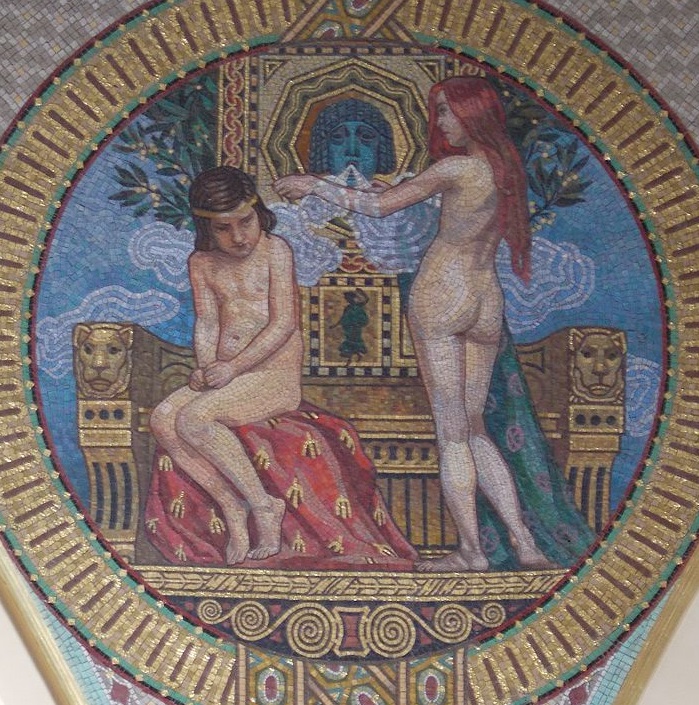
The English writer Ernest Christopher Dowson (1867–1900) remains famous for his poetry, but he also wrote novels (with Arthur Moore) and short stories, and translated in English several works of French literature. He belonged to the group of writers and artists who called themselves ‘Decadents,’ ‘the movement’ or ‘fin de siècle. With a vague feeling of the decay of civilisation and of its imminent collapse, they rejected Victorian moralism and sentimentality, and strove for the beauty of art for art’s sake.
In his lifetime, Dowson published two volumes of poetry, Verses (1896) and Decorations: in Verse and Prose (1899), as well as a short play in verse, The Pierrot of the Minute, performed first in 1892 but published only in 1897. However, between 1886 and 1891 he wrote down poems in a notebook, which he mentioned in a letter by the title “Poésie Schublade,” a mix of French and German words for ‘Drawer Poetry.’ Most of these poems remained unpublished until Desmond Flower obtained that notebook and included it in his edition of Dowson’s poetry in 1934.
The three volumes of poetry correspond to the three periods in Dowson’s love life. He wrote Poésie Schublade when he was fond of little girls, especially of the child actress Minnie Terry. Then in November 1889 he met Adelaide Foltinowicz (1878–1903) and fell deeply in love with her; Verses is dedicated to her. Adelaide, who had rejected his earlier marriage proposal, married another man in 1897; this last blow to Dowson’s hope of love happened while his health was declining and he experienced severe financial problems. Decorations, published shortly before his death, represents the last testimony of a desperate poet with a broken heart, dying of tuberculosis, poverty and neglect.
I have chosen from Poésie Schublade a beautiful nostalgic poem, which evokes the love of a child, childhood being transient itself. It repeats “(O Love, my Love and Italy!);” indeed Dowson spent some of his childhood in Italy.
A MOSAIC
Dreams, dreams of a day gone by!
(Blue skies and the sunny south)
A fair small face and a rosebud mouth,
(O Love, my Love and Italy!)
As the moist fresh rain in a time of drouth,
She came, my Love, as a child to me.
Grey olives and sparkling sea
Shine bright through the clear calm air—
Of gleaming gold is her waving hair—
(O Love, my Love and Italy!)
When the world was young and the earth was fair,
She came, my Love, as a child to me.
Dreams, dreams of a day gone by!
(Grey eyes and a sunny smile.)
Pure and a maiden and free from guile,
(O Love, my Love and Italy!)
In a dream she came and a little while
Tarried and went as a child from me.
White horses out on the sea,
Mist on the hills and a drizzling rain,
The wind wails loud like a soul in pain:—
(O Love, my Love and Italy!)
I called her long yet I call in vain,
Who came and went as a child from me.
Source of the poem: Poésie Schublade, in Ernest Dowson Collected Poems, R. K. R. Thornton with Caroline Dowson (editors), University of Birmingham Press (2003).
This is a revised version of the first post published on Agapeta, 2015/01/09.

